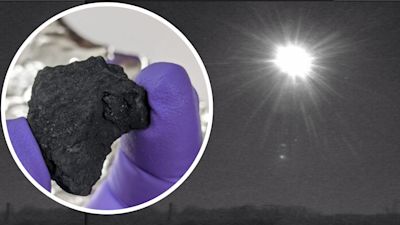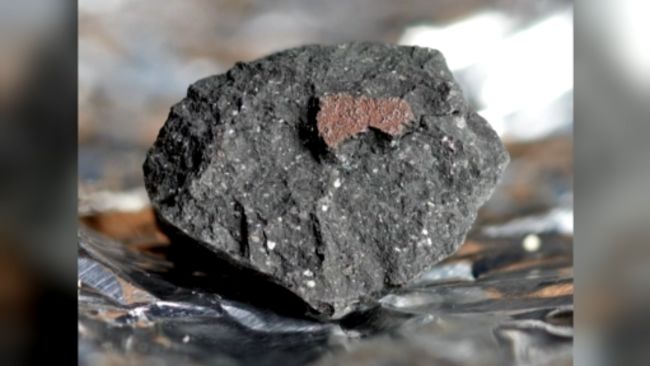Tuesday 9 March 2021

Scientists have recovered fragments of an extremely rare meteorite, that has never been seen before in the UK, in the countryside in Winchcombe.
The meteorite fell from the fireball that lit up the sky over the UK and northern Europe last month.
It is made from carbonaceous chondrite which has been known to contain natural ingredients, organics and amino acids, which are needed for life.
This fragment of space rock will now be the focus of an unprecedented research effort providing answers to questions about the early history of the solar system and life on Earth.
Footage of the fireball from people watching and UK Fireball Alliance camera networks helped locate the meteorite and figure out where it came from.
Almost 300g of the rare meteorite survived its fiery journey as it travelled 14km per second before hitting the Earth's atmosphere and landing on a drive in Gloucestershire.

Experts say the meteorite was found in such a good condition, and so quickly after its fall, which is quite unusual compared to the samples brought back from space missions.
Dr Ashley King, from the Natural History Museum, was among the first on the scene when the meteorite was discovered on Wednesday 3 March and has been advising on the handling and care of it since.
He said: "Nearly all meteorites come to us from asteroids, the leftover building blocks of the solar system that can tell us how planets like the Earth formed.
"The opportunity to be one of the first people to see and study a meteorite that was recovered almost immediately after falling is a dream come true."
Dr Richard Greenwood, research fellow in planetary sciences at the Open University was the first scientist to identify and advise on the meteorite.
He said: "I was in shock when I saw it and immediately knew it was a rare meteorite and a totally unique event.
"It's emotional being the first one to confirm to the people standing in front of you that the thud they heard on their driveway overnight is in fact the real thing."
A team of specialist scientists from across the UK have been searching the rest of the predicted fall area for more fragments including colleagues from The University of Plymouth.
There are approximately 65,000 known meteorites on Earth. Only 1,206 have been witnessed to fall and of these, only 51 are carbonaceous chondrites.
Researchers say it is the first known carbonaceous chondrite to have been found in the UK, and the first meteorite recovered in the UK in 30 years.
No comments:
Post a Comment